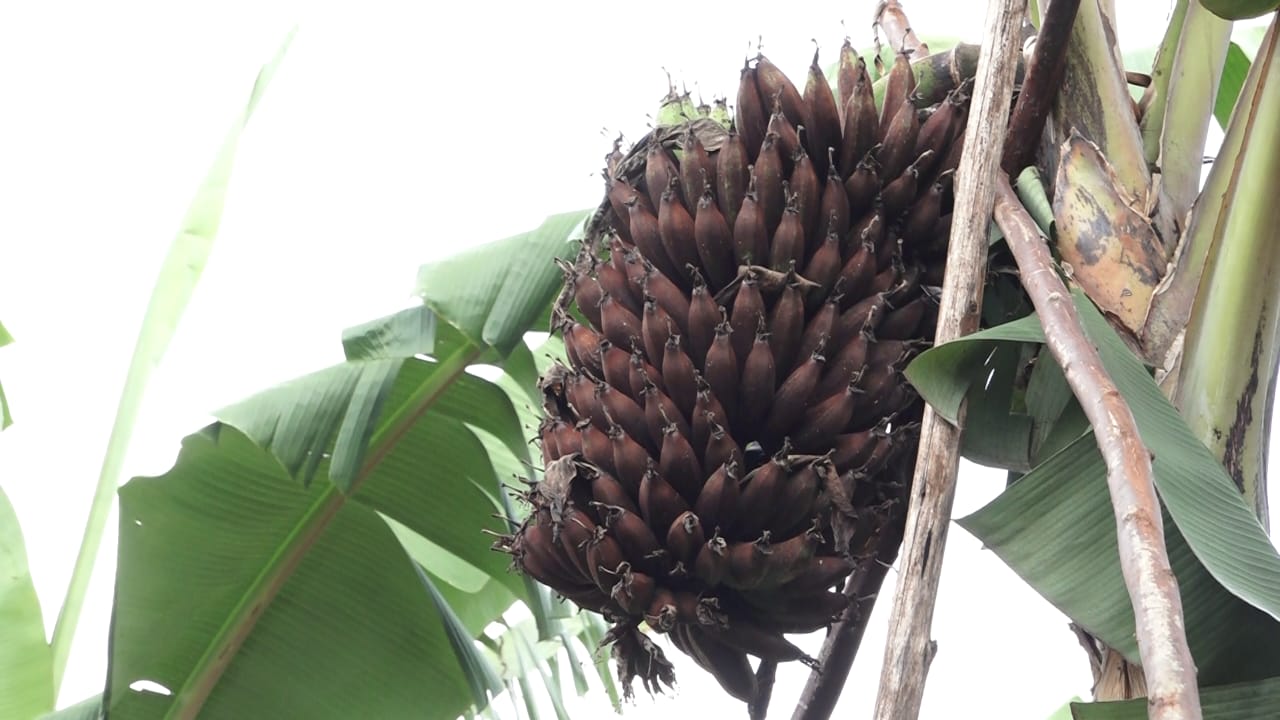Scientists have decried the continued resistance of pests and disease which they largely blame to some farmers who have adamantly refused to follow their prescriptions and application of pesticides.
The alleged complacency of these farmers have put food security at stake as banana plantations, coffee gardens and other agricultural ventures continue to be destroyed by pests.
Agriculture remains one of the top sectors that largely contribute to the country's GDP. In the F/Y 2022-23, it contributed about 24 percent of GDP and 35 percent of export earnings.
However, this narrative could soon change following the continued attack of pests and diseases.
"The problem is that some farmers still have a belief that they know each and everything in as far vector control is concerned," said Treasure Akankunda, a 'plant doctor'.
John Wycliffe Birungi, a resident of Ngora in Mwizi Sub-county, Rwampara District, is among the many Matooke farmers whose plantations have by a strange disease that turns a bunch of matooke black and hard inside, which makes it unpalatable.
"Matooke first shows black spots then in just like two days the disease spreads the entire plantation," Birungi said.
According to plant doctors, there is a lot of complacency on the side of farmers.
They say they normally prescribe best pesticide application and appropriate agronomical practices but majority of the farmers are yet to heed.
"A section of farmers are too defiant. You tell them to do this and that but they end up doing the contrary," said Ezra Kanzungu, a certified plant doctor.
That notwithstanding, the majority of the farmers have failed to interpret the labels on the pesticide packs as indicated by the manufacturers.
There are now calling for an urgent need to roll out mass sensitisation of farmers across the country to enable them to understand and appreciate the roles of scientists by putting into action whatever they're told to do if they're to control vectors.
Ms Caroline Aliamo, the project officer at the Centre for Agriculture Biosciences International, an inter-governmental organisation, says they are aware of the complacency among farmers but they are closely working with the Ministry of Agriculture to advance several interventions to address this challenge.
"Some of the information provided on pesticides can't be consumable by a lay farmer. It now goes back to the regulator to instruct distributors against altering the labels," Ms Aliamo said.
The Centre for Agriculture Biosciences International (CABI), in partnership with the Ministry of Agriculture, recently trained and certified over 100 plant doctors in southwestern region to back up government extension workers in fight against pests and disease that attack crops.
These were also trained in entrepreneurship skills and majority of them are earning a living in bee keeping, pesticide development, formulation of organic manure among many others.
Some of these plant doctors have been show casing their products and relearning from some of their colleagues at the national agriculture show which ending tomorrow in Jinja City.


